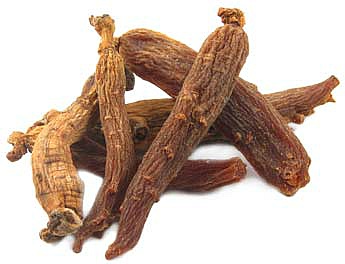 Ginseng can help treat and prevent influenza and respiratory syncytial virus (RSV), a respiratory virus that infects the lungs and breathing passages, according to research findings by a scientist in Georgia State University’s new Institute for Biomedical Sciences.
Ginseng can help treat and prevent influenza and respiratory syncytial virus (RSV), a respiratory virus that infects the lungs and breathing passages, according to research findings by a scientist in Georgia State University’s new Institute for Biomedical Sciences.
In a recent issue of Nutrients and an upcoming publication of the International Journal of Molecular Medicine, Sang-Moo Kang reports the beneficial effects of ginseng, a well-known herbal medicine, on human health.
Kang’s primary research focuses on designing and developing effective vaccines against viral diseases such as influenza virus and RSV, but he partnered with a university and research institutes in South Korea that wanted international collaborative projects to study if ginseng can be used to improve health and protect against disease because of the potential benefit in fighting these viruses. Ginseng has been reported to have anticancer, anti-inflammatory and immune modifying abilities.
Seasonal influenza is a serious respiratory disease that causes annual epidemics in humans worldwide, resulting in about three to five million cases of severe illness and about 250,000 to 500,000 deaths, according to the World Health Organization. Influenza can spread quickly, and new, unexpected pandemic influenza viruses may emerge at any time and cross over to different species. The H1N1 influenza virus, a new strain known as swine flu that emerged in 2009, spread rapidly to more than 74 countries. There are also challenges with existing influenza vaccines, such as required annual updates and no protection against pandemic strains and bird flu.
In addition, there are no vaccines available for RSV, which affects millions and is the leading cause of inflammatory bronchiolitis pneumonia and viral death in infants and in some elderly adults.
In his study published in Nutrients, Kang investigated whether red ginseng extract has preventive effects on influenza A virus infection. He found that red ginseng extract improves the survival of human lung epithelial cells infected with influenza virus. Also, treatment with red ginseng extract reduced the expression of genes that cause inflammation.
After infection with influenza A virus, mice that were orally administered ginseng over a long time showed multiple immune modifying effects, such as stimulated antiviral production of proteins important in immune response and fewer inflammatory cells in their bronchial walls. The study indicates the beneficial effects of red ginseng extract on preventing influenza A virus infections could result from immune modifying capabilities of ginseng.
In his upcoming publication in the International Journal of Molecular Medicine, Kang investigated whether Korean red ginseng extract has antiviral effects, or the ability to treat RSV infection. Kang found Korean red ginseng extract improved the survival of human lung epithelial cells against RSV infection and inhibited the virus from replicating, or multiplying, in the body. In addition, treatment with Korean red ginseng extract suppressed the expression of RSV-induced inflammatory genes and the formation of chemically reactive molecules containing oxygen, which play a role in virus-induced epithelial damage in RSV.
Also, mice that were orally administered Korean red ginseng extract had lower viral levels after infection with RSV. The results suggest that Korean red ginseng extract has antiviral activity against RSV infection.
Kang has further demonstrated ginseng’s beneficial effects on influenza and RSV in previously published studies.
Source: Jong Lee, Hye Hwang, Eun-Ju Ko, Yu-Na Lee, Young-Man Kwon, Min-Chul Kim, Sang-Moo Kang. Immunomodulatory Activity of Red Ginseng against Influenza A Virus Infection. Nutrients, 2014; 6 (2): 517 DOI: 10.3390/nu6020517














